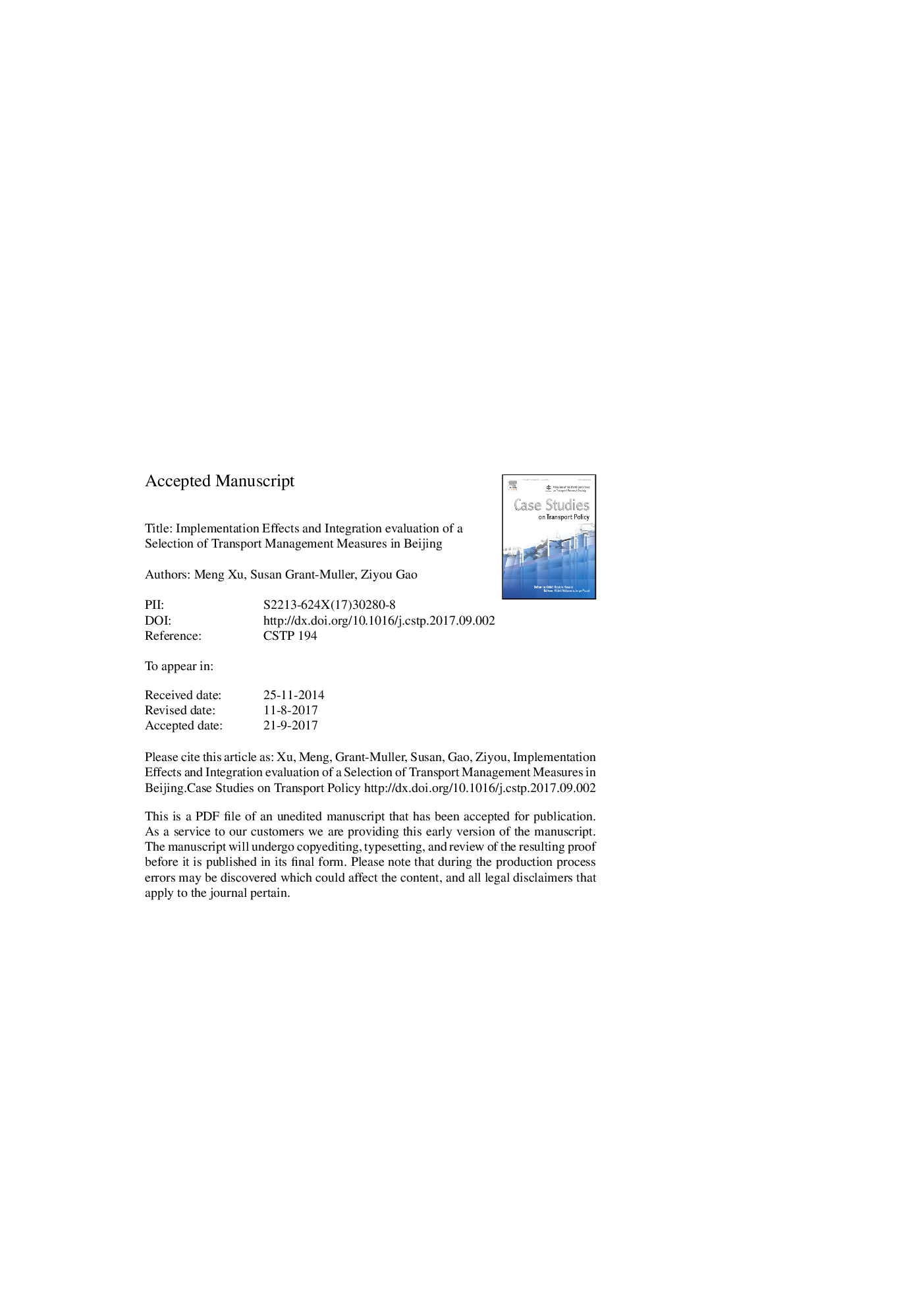| Article ID | Journal | Published Year | Pages | File Type |
|---|---|---|---|---|
| 6702348 | Case Studies on Transport Policy | 2017 | 34 Pages |
Abstract
With the serious urban transport challenges that rapid motorization and growth in travel demand for the city of Beijing have brought, the design and implementation of efficient and equitable urban transport polices has become essential to achieve sustainable development targets. This paper investigates a selection of transport management measures that were introduced following the Beijing 2008 Olympic and Paralympic Games. These include priority development of mass transit systems, private car ownership measures, a staggered rush hour plan, modified charging policies for parking and car restrictions based on license plate numbers. Effects of these measures with respect to growth in vehicle and trip numbers are summarized, then qualitatively evaluated within a proposed framework that covers in one dimension equity and efficiency and in another, social, economic and environmental aspects of transport sustainability. The evaluation process is intended to firstly shed light on the effects of transport management measures according to different sustainability dimensions and secondly to support policymakers involved in the practical design of future transport management measures for Beijing and similar city contexts.
Related Topics
Physical Sciences and Engineering
Engineering
Civil and Structural Engineering
Authors
Meng Xu, Susan Grant-Muller, Ziyou Gao,
